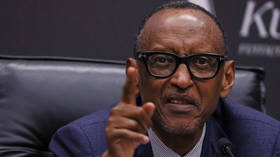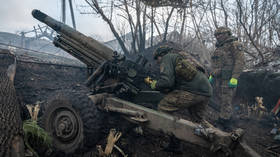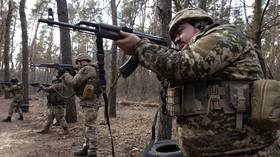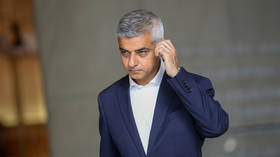Continuing a legacy? Nelson Mandela Foundation courts controversy by advocating VIOLENCE in Black Lives Matter statement
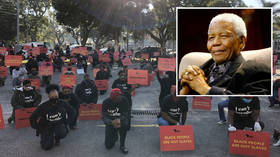
The Nelson Mandela Foundation has courted controversy by endorsing the use of violence for political struggles, in a statement on the Black Lives Matter movement.
The statement says that the demonstrations against racism and police brutality that have sprung up in the wake of the death of George Floyd are part of a “growing rage” against white supremacy across the globe.
The foundation, which was established to guard the legacy of Nelson Mandela, South Africa’s first democratically-elected president, argues that the case of South Africa illustrates that state violence in aid of white supremacy can be found even in countries where black people “hold the levers of government and of the state more broadly.”
Now is the time for sober assessment of a resilient White supremacy in SA, the US & globally. We need to reckon with the fact that structural & other forms of violence will provoke violence. It is time to apply our minds to this challenge. Black lives do matter. #BlackLivesMatterpic.twitter.com/LbAbetrZfU
— NelsonMandela (@NelsonMandela) June 9, 2020
It notes that a range of police killings illustrate that twenty-six years of democracy have not been enough to ensure that “black lives matter as much as white lives” in South Africa.
Addressing the use of violence for political means, the foundation said that it is often “too readily dismissed” as the actions of extremists or criminals, when in fact it can be the result of careful calculation by communities who “see that only such action elicits the desired response from the state.”
“When communities are confronted by both resilient structural violence and attacks on their bodies, violent responses will occur... The use of violence can be rational and carefully targeted,” it said.
The condoning of violence has drawn criticism on the foundation, with some pointing out that violence is already a huge problem in South Africa, while others noted that it is in keeping with Mandela’s legacy as a revolutionary.
So, because of the death of someone in another country, the Nelson Mandela foundation is promoting and justifying violence against "selected targets" in South Africa!As if we don't already have enough violence in this country... https://t.co/A3GRd9jdOgpic.twitter.com/HmP1E6YdUw
— Willem Petzer (@willempet) June 10, 2020
The violent legacy of Nelson Mandela is alive and well. pic.twitter.com/hrI19aKzL8
— Ian Miles Cheong (@stillgray) June 10, 2020
Mandela was the head of the military wing of the African National Congress during South Africa’s struggle for democracy. He famously remained on US terrorist watch lists until 2008, long after he was released from prison in 1990 and after his stint as President of South Africa from 1994 to 1999.
The statement quoted a speech he made from the dock when he was on trial for sabotage in 1964: "I do not, however, deny that I planned sabotage. I did not plan it in a spirit of recklessness, nor because I have any love of violence. I planned it as a result of a calm and sober assessment of the political situation that had arisen after many years of tyranny, exploitation and oppression of my people by the whites."
Like this story? Share it with a friend!






